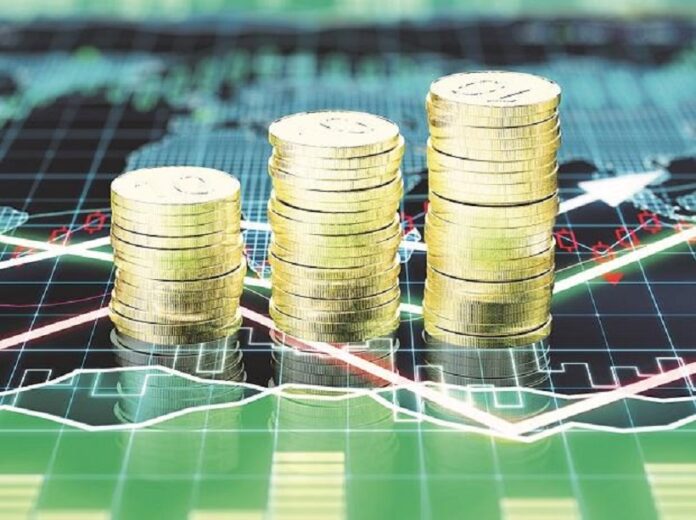President Bola Ahmed Tinubu’s foreign exchange reforms appear to be yielding the desired result. This is because Nigeria’s foreign exchange reserves hit $34.416 billion, the highest in nine months. The previous recent highest was $34.449 billion on June 20, 2023, which was three weeks into the inauguration of the current administration.
According to data obtained from the Central Bank of Nigeria, forex reserves have risen by $1.50 billion this year. This appears to have eased volatility in the currency market, with experts showing optimism to the outlook of Nigeria’s economy.
“The naira will appreciate in the forex market. The exchange rate will stabilise. Inflation rate is most likely to moderate given the exchange rate pass-through to commodity prices,” President, Association of Capital Market Academics in Nigeria, Prof Uche Uwaleke, said in a report in Nation Newspaper.
Also, data from the Central Bank of Nigeria (CBN) indicated average crude oil price at $88.84 per barrel. With the lingering crises in Middle East and Eastern Europe amid elevated oil demand, most analysts expected crude oil price to remain substantially above Nigeria’s budget benchmark of $77.96 per barrel.
The International Energy Agency (IEA), in its latest report, increased its global crude oil demand projection for 2024 by 1.3 million barrels per day (mbpd) to 103.2mbpd. IEA estimated that extended output cuts by Organisation of the Petroleum Exporting Countries (OPEC) and its affiliates (OPEC+) would continue to moderate supply output, keeping off any major downside volatility.
OPEC+ members had two weeks ago extended their voluntary production cuts of 2.2mbpd into the second quarter of 2024, with expectation of further extension beyond the first half.
Minister of Finance and Coordinating Minister of the Economy, Mr. Wale Edun, last week indicated that the country’s oil production has risen to 1.65mbpd, from some 1.25mbpd in June 2023.
OPEC had recently reported that Nigeria’s crude oil production rose to 1.476 mbpd in February 2024, an increase of 47,000 barrels on 1.429 mbpd recorded in January 2024. The data was based on secondary market intelligence sources surveyed by the organisation.
“According to secondary sources, total OPEC-12 crude oil production averaged 26.57 mb/d in February 2024, 203 tb/d higher, mo- m. Crude oil output increased mainly in Libya and Nigeria, while production in IR Iran and Iraq decreased,” OPEC stated in its Monthly Oil Market Report.
The Federal Government’s N28.78 trillion 2024 budget is premised on 1.78mbpd daily oil production, $77.96 oil benchmark price, exchange rate of N800 per dollar and GDP growth rate of 3.88 per cent.
Oil sector and currency management reforms are two of President Bola Tinubu’s administration’s economic blueprint. A multi-stakeholders reform agenda involving the Ministry of Finance, security services, Nigerian National Petroleum Company Limited and the CBN has seen a steady improvement in crude oil management and accountability.
In its latest macroeconomic assessment report, the International Monetary Fund (IMF) had sounded upbeat on the Nigeria’s macroeconomic reforms citing the improvement in oil production, ongoing efforts to boost food production and social welfare programmes among others.
Governor, Central Bank of Nigeria (CBN), Dr Olayemi Cardoso, has outlined that ongoing efforts to strengthen the country’s forex position would lead to increased stability in forex reserves and naira.
According to him, the collaboration with Ministry of Finance and the NNPCL to ensure that all forex inflows are returned to the CBN will greatly enhance forex flows and contribute to the accretion of reserves.
“The expected stability in the foreign exchange market for 2024 can be attributed to the reduction in petroleum product imports and the recent implementation of a market-determined exchange rate policy by the CBN. This reform is designed to streamline and unify multiple exchange rates, fostering transparency and reducing opportunities for arbitrage. The resulting consistent and stable exchange rate will not only boost investor confidence but also attract foreign investment, elevating Nigeria’s appeal to global investors.
“We are implementing a comprehensive strategy to improve liquidity in our forex markets in the short, medium, and long term. Our focus is on addressing fundamental issues that have hindered the effective operation of our markets over the years,” Cardoso said.
He pointed out that the apex bank understands that upholding the integrity of financial markets is crucial for building confidence, thus it remains committed to decisively address any infractions and abuses.
He noted that in efforts to stabilise the exchange rate, the CBN prioritises transparency and a market environment that enables the fair determination of exchange rates, ensuring stability for businesses and individuals alike.
“We believe that the naira is currently undervalued and, coupled with coordinated measures on the fiscal side, we will expedite genuine price discovery in the near term. This coordinated approach will contribute to a more balanced and stable exchange rate,” Cardoso said.
Finance and economy experts were unanimous that the buildup in external reserves was a good indication for the country’s currency management and macroeconomic stability.
Analysts expected that changes in forex management rules, steady improvement in crude oil production and upbeat in global oil price could help the country mitigate its volatile forex situation.
Managing Director, Arthur Steven Asset Management, Mr. Olatunde Amolegbe, said the continuing increase in forex reserves will support government’s current efforts aimed at fostering liquidity and stability at the forex market.
“The increase is a positive signal for improved liquidity in the forex market. This should ultimately help to stabilize the exchange rate of the naira or even strengthen it against the dollar if the increase is steady and consistent,” Amolegbe said.
Uwaleke said any increase places the CBN in a stronger position to meet forex obligations as well as intervene in the forex market.
“If this development is sustained, we are likely to witness an appreciation of the naira in the forex market and more stability in the exchange rate following improved liquidity. This is one positive development capable of keeping away destructive speculators from the forex market,” Uwaleke said.
He explained that the increase could be due to increase in oil revenue as a result of the rise in crude oil price and the recent increase in crude oil production.
He added that the external reserves could also increase if the government has received any of the concessional loans it has negotiated with the World Bank.
Uwaleke however said Nigeria needs to curb excessive import dependence to support its forex recovery.
“It goes without saying that export- base diversification remains the only sustainable solution to the present forex crisis,” Uwaleke said.
According to him, to curb the demand pressure, government should compel a change in consumption behaviour by enacting a ‘Buy Nigeria law’ akin to the ‘Buy America Act’ of 1933 and recently the ‘Build America, Buy America Act’ of 2021.
“Also, Nigeria’s import data support revisiting and scaling up the CBN’s currency swap deal with the Peoples Bank of China. Given that the bulk of Nigeria’s imports are from China, it stands to reason, therefore, to explore ways of bypassing the dollars and settling these transactions in the Yuan. This was the idea behind the currency swap with China which was largely inadequate in size. In order to increase the stock of Yuan in our external reserves, Nigeria can issue panda bonds, which are bonds denominated in the Chinese Yuan and are considered cheaper than Eurobonds,” Uwaleke said.













